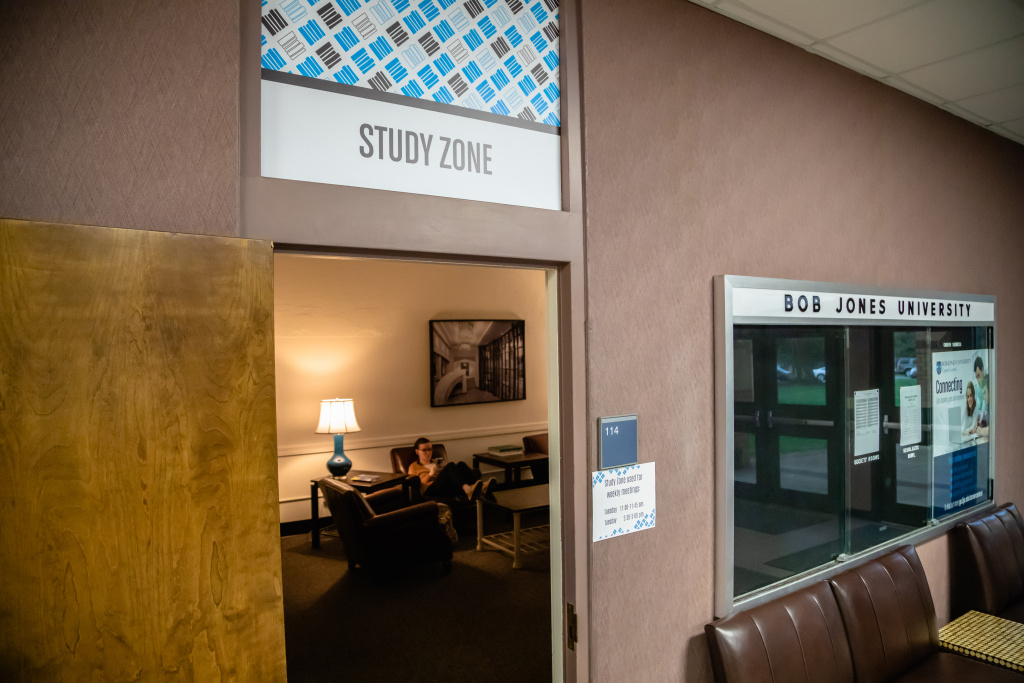Welcome back! The first full week of classes is nearly complete, and you have all of your assignment schedules. Now what?
Getting back into the flow of college life can be tough. You’ve gotten used to sleeping in and letting your mom cook and do your laundry for you. But it’s time to face the music, put the alarm clock across the room, and get your brain back in academic gear.
Find a study spot
Some students can study in their rooms all comfy on their beds. Others wake up with History of Civ. textbook pages stuck to their faces after an impromptu nap. Some can study with the hustle and bustle of people around them in The Den. Others are frustrated by the numerous distractions.
Finding what works best for you is trial and error. By the time you reach college, you should already know what environments help you focus and which ones don’t. Look for locations that match your ideal environment. Here are a few suggestions to get you started:
Study lounges
Every residence hall has a study lounge, a designated room set aside for studying. Some lounges are located by the res. hall’s front entrance and may be noisier than other lounges (e.g., Mary Gaston Hall’s study lounge is in the basement).
The Den
With the addition of the new space, there are many nooks and crannies to take advantage of in The Den. From the giant floor pillows to the hanging chairs, the new space has lots of comfortable seating. Or if you’d prefer to study at a table, the tried and true Den areas make good study spots, too. Have you tried the tables tucked next to the fireplace?
The library
If you’re easily distracted and need quiet to study well, the library may be the best option for you with its dedicated quiet zones and carrel desks. Because the School of Health Professions classrooms are being constructed on the first floor, the library is now located on the second floor of the Mack Library.
Find a study buddy
Reviewing your notes on your own is essential to your academic success. But studying with others is also helpful. It shows you different points of view on a subject, fills in information you may have missed, allows you to use different study methods, and strengthens any weak content areas you may have. Some BJU classes have an official study group. If you’re not sure if your class has a study group or not, ask your teacher. And if it doesn’t, grab your classmates for a study session.
Find a study groove
Part of settling back into second semester is reestablishing your routines. A good study routine is key to academic success.
Have a plan
Whether you put it on paper or in your phone, keep all of your class assignments in one place. I’m old school, so I prefer to have my assignments in a hard copy planner. My favorite is this one by Orange Circle Studio because it divides each day into six segments letting me separate class assignments into their own boxes.
If you’re a digital native and prefer to keep your life in the cloud, there are many apps designed to help you stay organized and get things done. Here are our favorites:
Trello lets you create lists and add cards to those lists. You can add descriptions, checklists and due dates to the cards, and you can attach files from your computer, Dropbox, Google Drive, Box and OneDrive.
If you’re a fan of lists, you’ll love Todoist. This app lets you create superpowered to-do lists. You can assign a due date, priority level and a person to each task, and you can even create subtasks. Todoist also lets you share projects so when you’re working on a group project, there’s no question about who is supposed to do what when, and everyone knows the project’s status.
This app puts everything in one place. You can combine a calendar view of all of your class assignments with project pages (complete with task lists and attached research links and files) and class notes. There are also many more templates for pages such as a reading list, a travel planner and a grade calculator.
Start small
It’s not new news that studying in small portions over longer periods of time is more effective than studying larger chunks in short periods of time. Get in the habit now of reading back through your notes each day. Don’t just skim; actually read the material, making sure you understand it and don’t have gaps in your notes.
Start now
Don’t wait until April to start studying for your finals. Start studying now. If you intensely study for a short period of time each week—creating concept maps, solving problems, explaining concepts out loud in your own words and using other active learning strategies—throughout the semester, you will remember and actually know more by the time final exams come than you will if you cram during the last few days of the semester.








